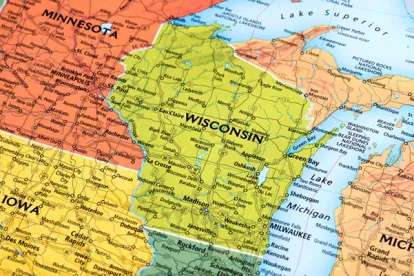The lack of federal workplace standards and the recent Wisconsin Supreme Court decision invalidating Governor Evers’ Safer at Home Order have created significant confusion for businesses and municipalities reopening during the 2019 novel coronavirus (COVID-19) pandemic. As if this weren’t enough, businesses regulated by the U.S. Environmental Protection Agency (EPA) and Wisconsin Department of Natural Resources (DNR) have an added layer of complexity to worry about.
Enforcement guidance issued by the EPA and DNR are significantly different. This difference is critical because many environmental requirements, while imposed by federal law, are enforced by both the EPA and DNR. For example, the Clean Air Act (CAA), the Clean Water Act (CWA), and the Resource Conservation and Recovery Act (RCRA), are administered by DNR under EPA-delegated programs.
EPA ENFORCEMENT POLICY DURING THE COVID-19 PANDEMIC
On March 26, 2020, the EPA issued guidance regarding the federal approach for environmental enforcement during the pandemic. Generally, the EPA’s guidance states the following:
-
Applicability: The federal guidance only applies to the EPA; states can take a more restrictive approach to enforcement during the pandemic.
-
Scope: The EPA’s enforcement discretion does not apply to criminal violations or activities required to be carried out under Superfund and RCRA corrective action requirements.
-
General conditions for guidance: If compliance with environmental requirements are not “reasonably practicable” due to the pandemic, facilities need to document how the pandemic caused noncompliance and return to compliance “as soon as possible.”
-
Routine compliance monitoring and reporting:
-
Facilities must report noncompliance to the EPA and/or DNR if reporting is required by existing law (permit, rule or statute).
-
If there is no required reporting or such reporting “is not reasonably practicable,” the regulated facility shall maintain its documentation and make it available upon request for the EPA or DNR.
-
-
EPA enforcement: For facilities following this guidance, the EPA will not seek enforcement for “routine compliance monitoring, integrity testing, sampling, laboratory analysis, training and reporting or certification obligations” where the cause for such noncompliance is COVID-19 and supported by appropriate documentation.
-
Special requirements for facility operations: There are special requirements contained in the EPA’s guidance relating to particular operational scenarios. The guidance should be reviewed in detail if a facility is faced with any of the following:
-
Operations creating acute risk or imminent threat to human health or the environment;
-
A failure of air emission control, wastewater or waste treatment systems, or other facility equipment;
-
A failure of a hazardous waste generator to remove material from their site within the applicable exempt storage requirement time periods;
-
Enforcement discretion afforded to Concentrated Animal Feeding Operations (CAFOs).
-
-
Special requirement applicable to public water systems: The EPA’s guidance describes specific enforcement discretion applicable to such facilities.
DNR POLICY ON ENFORCEMENT DURING THE COVID-19 PANDEMIC
DNR guidance on coronavirus-related enforcement takes a significantly different approach from the EPA’s guidance. In particular, DNR's guidance does not provide any general exemptions for noncompliance with certain routine requirements that are supported by documentation. Rather, DNR’s guidance requires the facility to notify DNR of the coronavirus-related noncompliance concern before the noncompliance occurs. Once such notification is provided, DNR will consider, on a case-by-case basis, whether to refrain from enforcement based upon the notified situation if it occurs in the future.
In particular, DNR’s guidance contains the following elements:
-
All environmental requirements remain applicable: All Wisconsin statute and DNR regulations remain in place unless otherwise expressly suspended by Governor Evers.
-
Notification requirements: The following procedure should be followed by facilities facing coronavirus-related noncompliance issues:
-
All spill or noncompliance problems that pose a public threat, meaning an imminent or actual threat to health or the environment, must be reported immediately to DNR.
-
If the anticipated noncompliance does not constitute a pubic threat, the facility must provide notification to DNR of the coronavirus-related noncompliance matter before the noncompliance occurs:
-
Contact your DNR representative with facility information; or
-
Complete DNR’s online form.
-
-
DNR’s guidance provides detailed information that must be included the notification.
-
-
Enforcement discretion: Based upon the notification, DNR shall consider granting alternative compliance options on a case-by-case basis related to the facility’s anticipated COVID-19 noncompliance matter.
STRATEGIES FOR CORONAVIRUS-RELATED ENVIRONMENTAL NONCOMPLIANCE MATTERS
While the EPA and DNR take significantly different approaches to exercising enforcement discretion for coronavirus-related environmental noncompliance matters, facilities should attempt to comply with both agencies’ guidance should a noncompliance situation arise. Due to the requirement of alerting DNR prior to noncompliance occurring, discovery of a noncompliance situation will require a prompt and careful cost benefit analysis of applying the agencies’ collective guidance. Considering the time-sensitive nature of these situations, consult with knowledgeable counsel to help mitigate the potential for enforcement actions.



 />i
/>i

